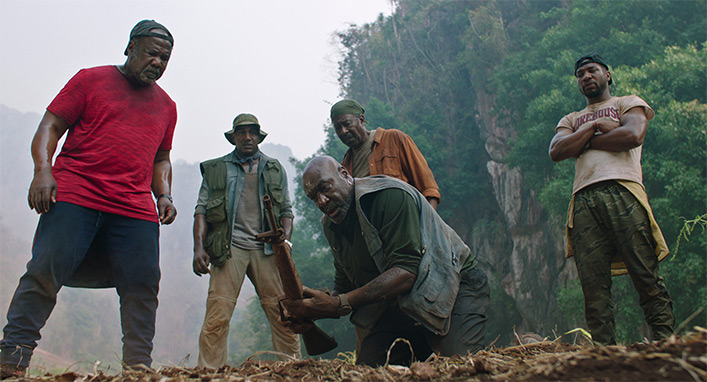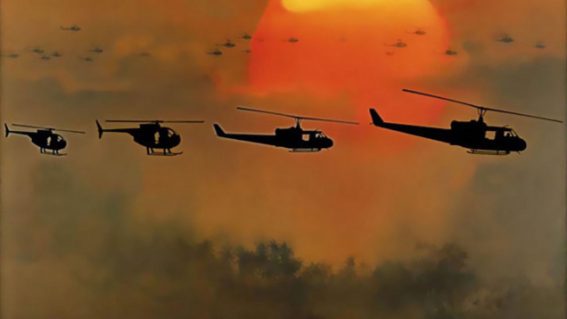Da 5 Bloods is a masterful war movie from the always thrilling Spike Lee

Four African American war veterans return to Vietnam in the latest film from the always incendiary Spike Lee, who has added yet another stunning film to his resumé, writes critic Travis Johnson.
Decades after the end of the Vietnam War, four African American veterans (Delroy Lindo, Clarke Peters, Isaiah Whitlock Jr. and Nort Lewis) reunite in country to try and locate both the remains of their slain leader, Norman (Chadwick Boseman) and the cache of gold they buried near where he was killed.
In an opening montage of historical footage director Spike Lee, never one to obfuscate his intent, presents the thesis of Da 5 Bloods via a clip of Civil Rights martyr Malcolm X. “When you take 20 million black people and make them fight all your wars and pick all your cotton,” Malcolm intones, “sooner or later their allegiance towards you is going to wear thin.”
And so Da 5 Bloods, in plot and genre trappings a back-to-the-war movie of the type that had its heyday in the ‘80s, crossed with a military caper in the style of Kelly’s Heroes or Three Kings, has higher aspirations than its get-the-gold-and-relive-some-trauma plot might indicate: interrogating the role of the black man in the American military from the War of Independence on up.
Well, you could never accuse Lee of a lack of ambition, could you?
Vitally, the filmmaker anchors his broader political concerns in the personal conflicts of his cast of characters. So while a punter may balk at, say, the assertion that military service is just another form of slavery, it’s hard to argue with the very real and deleterious effects that service has had on hard-nosed Paul (Lindo, Oscar-bound), who hides his PTSD beneath a veneer of pugnacious political conservatism. Other characters have their own issues and arcs, but it’s to Paul that we continually return—indeed, are drawn to; the always reliable Lindo really knocks it out of the park here, delivering a performance that mixes bravado and theatricality with a core of palpable emotion and pain.
Which suits the film that revolves around him. Lee has no interest in presenting a “realistic” version of the Vietnam War or its still-painful aftermath, instead reveling in the artificiality of the filmic form to present a kind of bombastic tone-poem full of rage and sorrow (and joy, it must be said—Da 5 Bloods is frequently hilarious, especially when it comes to the repartee between the old soldiers). Unlike fellow New York filmo Martin Scorsese’s The Irishman, Da 5 Bloods eschews de-aging technology for its flashback sequences, instead putting its older cast in Army green right next to the youthful Chadwick Boseman.
Documentary footage and historical asides are interspersed with dramatic footage, such as when Lee reminds us that the first American casualty of the American Revolution was the black Crispus Attucks. Other films are woven into the fabric of this one: da Bloods party at an Apocalypse Now-themed bar, while later The Treasure of the Sierra Madre gets a dialogue check. The result is a kind of cinematic tapestry, and while the sometimes hairpin reversals of tone might jar some viewers, you can’t condemn their effectiveness.
Lee’s great gift as a filmmaker is his ability to make history both personal and visceral, and here he reminds us that da Bloods of both the film and real history shed real blood, and the wounds of war are carried by men to this very day. Da 5 Bloods is a masterful piece of cinema from one of the great, singular voices of the medium.


















